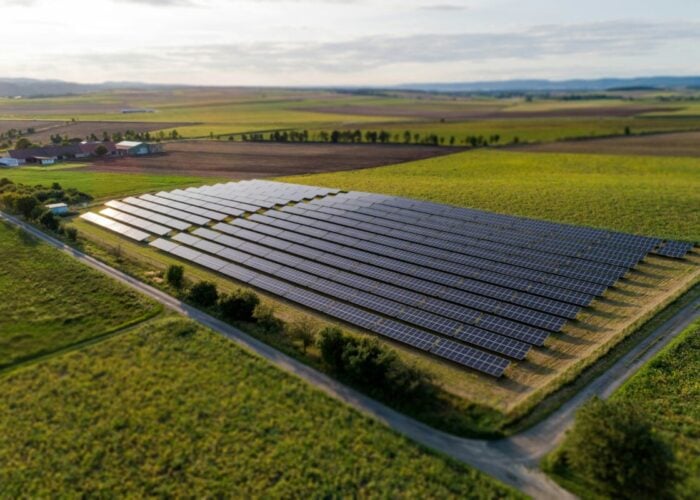Europe needs to intensify its support for the Desertec plan to import cheap solar and wind power from desert areas or face escalating energy prices, the body behind the initiative has warned.
According to a report by the Desertec Industrial Initiative (DII) consortium, Europe could source 60% of its power needs from renewable energy by 2030 by tapping into the vast renewable energy potential of the desert regions of North Africa and the Middle East.
Try Premium for just $1
- Full premium access for the first month at only $1
- Converts to an annual rate after 30 days unless cancelled
- Cancel anytime during the trial period
Premium Benefits
- Expert industry analysis and interviews
- Digital access to PV Tech Power journal
- Exclusive event discounts
Or get the full Premium subscription right away
Or continue reading this article for free
But in order to achieve this goal, it said European leaders needed to buy into the concept and provide policy and financial support for the grid interconnections needed to allow Europe to import electricity from abroad.
Critics of the project have claimed that with its €400 billion price tag and infrastructure-heavy delivery model, the Desertec model will be too costly and complex to build.
And last year DII lost two of its prominent supporters, Bosch and Siemens, which are both exiting the solar business altogether.
But DII’s report Desert Power: Getting Started argues that Europe stands to benefit from the plan because it would have a reliable source of low cost energy at a time when fossil fuel prices are predicted to rapidly escalate.
It said Middle East and North African (MENA) countries are planning up to 50GW of solar and wind capacity by 2020, and that Europe could benefit from this low cost energy by developing a common power grid with these regions.
Paul van Son, chief executive of the DII: “The countries of North Africa and the Middle East will ultimately meet their rapidly growing electricity needs with renewable energy.
“In addition, they have a concrete economic interest in exporting green electricity in the direction of Europe. There is enough power available in the long term to contribute to energy policy targets in Europe and to reduce costs in a common market.”
DII said Europe needed to take the lead by showing “clear political will” for the project through various policy and financial commitments.
Among these it said Europe needed to set binding renewables targets for 2030 and harmonise the various support and incentive measures available for renewables across different member states.
Additionally it called for a ‘desert power development fund’ of a suggested €50 million to provide companies in MENA countries initiate up to 20 projects and kick start progress towards the region’s 50GW target.
“Further progress now depends greatly on the political will in Europe to bring cross-border cooperation and grid infrastructure into reality,” said van Son.
“Desert power can make a decisive contribution to affordable electricity for all. This advantage can benefit the citizens of Europe.”
In an interview with Reuters earlier this month said that without Europe’s leadership, “nothing will happen” in implementing the Desertec vision.






